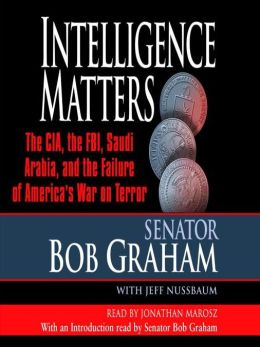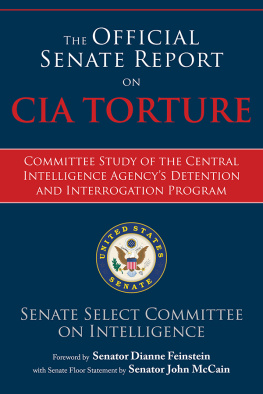Graham B. - Intelligence Matters: The CIA, the FBI, Saudi Arabia, and the Failure of Americas War on Terror
Here you can read online Graham B. - Intelligence Matters: The CIA, the FBI, Saudi Arabia, and the Failure of Americas War on Terror full text of the book (entire story) in english for free. Download pdf and epub, get meaning, cover and reviews about this ebook. genre: Science / Politics. Description of the work, (preface) as well as reviews are available. Best literature library LitArk.com created for fans of good reading and offers a wide selection of genres:
Romance novel
Science fiction
Adventure
Detective
Science
History
Home and family
Prose
Art
Politics
Computer
Non-fiction
Religion
Business
Children
Humor
Choose a favorite category and find really read worthwhile books. Enjoy immersion in the world of imagination, feel the emotions of the characters or learn something new for yourself, make an fascinating discovery.
- Book:Intelligence Matters: The CIA, the FBI, Saudi Arabia, and the Failure of Americas War on Terror
- Author:
- Genre:
- Rating:3 / 5
- Favourites:Add to favourites
- Your mark:
Intelligence Matters: The CIA, the FBI, Saudi Arabia, and the Failure of Americas War on Terror: summary, description and annotation
We offer to read an annotation, description, summary or preface (depends on what the author of the book "Intelligence Matters: The CIA, the FBI, Saudi Arabia, and the Failure of Americas War on Terror" wrote himself). If you haven't found the necessary information about the book — write in the comments, we will try to find it.
In February 2002, only four months after combat began in Afghanistan, the Bush administration ordered General Tommy Franks to move vital military resources out of Afghanistan for an operation against Iraqdespite Frankss privately stated belief that there was a job to finish in Afghanistan, and that the war on terrorism should focus next on terrorist targets in Somalia and Yemen.
Throughout 2002, President Bush directed the FBI to limit its investigations of Saudi Arabia, which supported some and possibly all of the September 11 hijackers.
The White House was so uncooperative with the bipartisan inquiry that its behavior bore all the hallmarks of a cover-up.
The FBI had an informant who was extremely close to two of the September 11 hijackers, and actually housed one of them, yet the existence of this informant and the scope of his contacts with the hijackers were covered up.
There were twelve instances when the September 11 plot could have been discovered and potentially foiled.
Days after 9/11, U.S. authorities allowed some Saudis to fly, despite a complete civil aviation ban, after which the government expedited the departure of more than one hundred Saudis from the United States.
Foreign leaders throughout the Middle East warned President Bush of exactly what would happen in a postwar Iraq, and those warnings went either ignored or unheeded.As a result of his Senate work, Graham has become convinced that the attacks of September 11 could have been avoided, and that the Bush administrations war on terrorism has failed to address the immediate danger posed by al-Qaeda, Hezbollah, and Hamas in Afghanistan, Syria, Yemen, and Somalia. His book is a disturbing reminder that at the highest levels of national security, now more than ever, intelligence matters.
Graham B.: author's other books
Who wrote Intelligence Matters: The CIA, the FBI, Saudi Arabia, and the Failure of Americas War on Terror? Find out the surname, the name of the author of the book and a list of all author's works by series.














